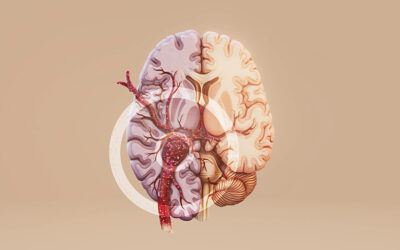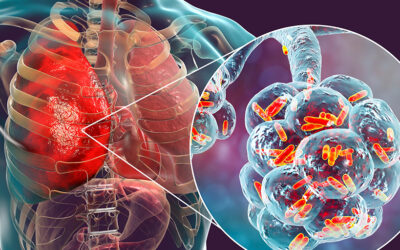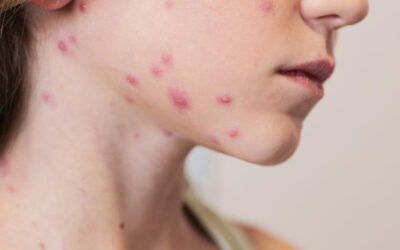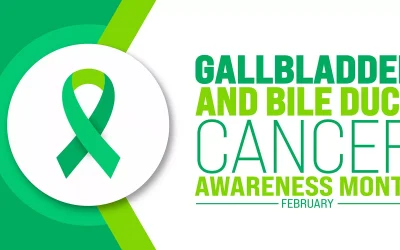Dengue Fever: Symptoms, Diagnosis, Treatment, and Prevention
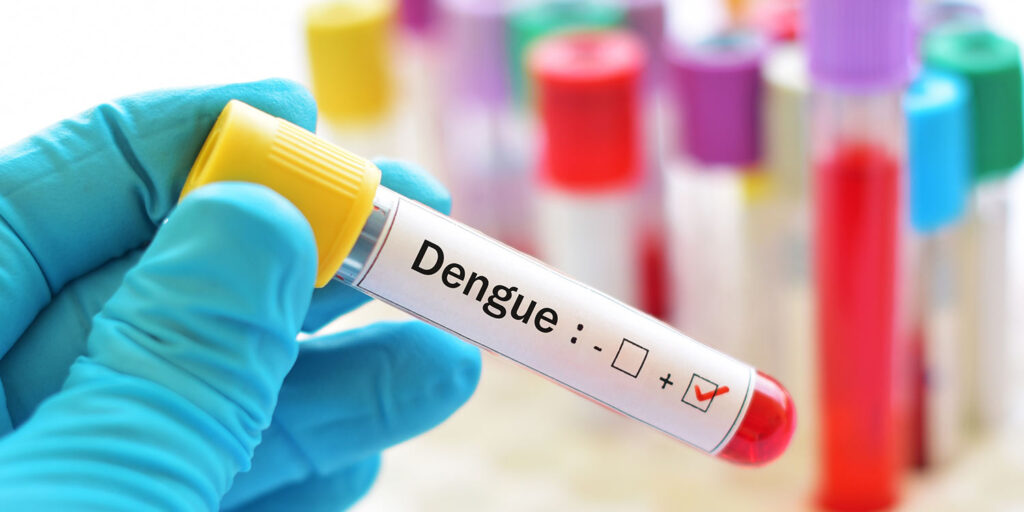
Despite global efforts to increase awareness about dengue, it remains a significant public health concern, particularly in tropical and subtropical regions such as India. Transmitted by the bite of infected Aedes mosquitoes, dengue affects thousands of people each year, with symptoms ranging from mild infections to life-threatening conditions. That’s why it is important for everyone to be aware about its symptoms, so that treatment can be sought before the condition becomes critical. To help, in this article, we cover everything you need to know about dengue fever, empowering readers with essential knowledge to help combat this condition.
Table of Contents
ToggleWhat is Dengue Fever
Dengue fever is a viral illness caused by one of four related dengue viruses: DEN-1, DEN-2, DEN-3, and DEN-4. These viruses are primarily spread through the bites of infected female Aedes mosquitoes, particularly Aedes aegypti and Aedes albopictus, which typically bite during daylight hours.
When a mosquito bites a person infected with dengue, the virus enters the mosquito’s bloodstream. Later, when this infected mosquito bites another individual, the virus gets transmitted, causing infection. It’s important to note that once infected with a particular dengue virus strain, an individual develops lifelong immunity to that strain, but remains vulnerable to the other three types. Subsequent infections by different strains increase the risk of developing severe forms of dengue, such as Dengue Haemorrhagic Fever (DHF) or Dengue Shock Syndrome (DSS).
Risk Factors for Dengue Fever
Several factors can increase the likelihood of dengue infection, including:
- Monsoon Season: Higher rainfall creates ideal breeding conditions for mosquitoes.
- Urban Living: Crowded urban areas with inadequate sanitation promote mosquito breeding.
- Travel History: Travelling to or residing in dengue-endemic regions increases exposure.
- Previous Dengue Infection: Individuals with a history of dengue are at greater risk of severe disease upon reinfection.
Read More: Mosquito-Borne Diseases and How to Prevent Them
Symptoms of Dengue Fever
Recognising dengue fever early is essential for timely intervention. Symptoms typically appear 4 to 10 days after an infected mosquito bite and can last between 2 to 7 days.
Common Symptoms
In most cases, dengue fever presents with the following signs:
- High-grade Fever: Sudden onset, often reaching up to 104°F (40°C)
- Severe Headache: Typically located behind the eyes
- Joint and Muscle Pain: Often severe enough to cause significant discomfort (hence dengue’s nickname, “breakbone fever”)
- Fatigue and Weakness: Extreme tiredness and loss of strength
- Skin Rash: Usually appearing 2–5 days after the fever begins, spreading from the limbs to the torso
- Nausea and Vomiting: Common, especially during the initial fever stage
- Mild Bleeding: Such as gum bleeding, nosebleeds, or easy bruising
Severe Dengue Symptoms (Dengue Haemorrhagic Fever)
While most dengue cases are mild to moderate, some can escalate into a severe form known as Dengue Haemorrhagic Fever (DHF). Symptoms indicative of DHF include:
- Severe abdominal pain
- Persistent vomiting (often with blood)
- Bleeding from gums or nose
- Blood in stools or urine
- Difficulty breathing
- Sudden drop in blood pressure (shock)
- Cold, clammy skin and restlessness
When to See a Doctor
While mild symptoms of dengue fever often resolve with supportive care at home, certain signs require immediate medical attention. Being alert to specific warning signs helps in preventing severe complications and ensures timely medical intervention. Seek urgent medical care if any of the following red flags appear:
- Severe Abdominal Pain: Persistent pain or tenderness in the abdomen.
- Continuous Vomiting: Frequent episodes of vomiting, possibly containing blood.
- Bleeding: Noticeable bleeding from the gums or nose, or blood appearing in urine, stools, or vomit.
- Difficulty Breathing: Shortness of breath or rapid breathing.
- Dizziness or Confusion: Sudden drop in blood pressure, weakness, or loss of consciousness.
- Dehydration: Reduced urine output, dry mouth, or lethargy despite fluid intake.
Diagnosis of Dengue Fever
Diagnosing dengue fever involves a combination of clinical evaluation and laboratory tests. Since early symptoms can be similar to other viral infections, accurate diagnosis is essential for proper management and to prevent complications. Here is how dengue fever is typically diagnosed:
1. Clinical Assessment
Doctors begin with a physical examination and detailed symptom history. Common signs such as sudden high fever, severe headache, pain behind the eyes, joint and muscle pain, and skin rash raise suspicion of dengue, especially during outbreak seasons or in areas with known mosquito activity.
2. Laboratory Tests
To confirm the infection, doctors may recommend the following tests:
- NS1 Antigen Test: Detects the dengue virus in the early stage (within the first 5 days of symptoms). It is a quick and commonly used test for early diagnosis.
- IgM and IgG Antibody Tests: These blood tests detect antibodies produced in response to the dengue virus. IgM appears first (from day 4–5 of illness), while IgG indicates a past or secondary infection.
- Complete Blood Count (CBC): Helps monitor platelet count and white blood cell levels. A drop in platelet count and increased haematocrit levels are common in dengue and help in assessing disease severity.
3. RT-PCR Test (in some cases)
This molecular test detects the genetic material of the dengue virus and can confirm the specific virus serotype. It is highly accurate but not always used due to cost and availability.
Treatment Options for Dengue Fever
Currently, there is no specific antiviral medication to treat dengue fever. Treatment primarily focuses on supportive care to relieve symptoms, manage complications, and facilitate recovery under medical supervision.
Supportive Care
Doctors recommend the following measures to manage dengue effectively:
- Hydration: Adequate fluid intake, such as water, oral rehydration solutions (ORS), and coconut water, prevents dehydration and stabilises electrolyte balance.
- Fever and Pain Management: Paracetamol is usually prescribed to reduce fever and relieve joint and muscle pain. Non-steroidal anti-inflammatory drugs (NSAIDs), such as ibuprofen or aspirin, are avoided due to bleeding risk.
- Monitoring Platelet Counts: Regular blood tests are conducted to monitor platelet levels and blood cell counts, allowing early detection and management of complications.
- Hospitalisation (for Severe Dengue): Patients exhibiting signs of severe dengue, such as significant bleeding or shock, require immediate hospitalisation for intensive supportive care, including intravenous fluids, blood transfusions, and close monitoring.
Prevention of Dengue Fever
Preventing dengue fever relies heavily on controlling mosquito populations and reducing the risk of mosquito bites. Effective prevention involves individual actions combined with community-wide efforts. Some of the prevention tips include:
- Eliminate Mosquito Breeding Sites: Regularly empty and clean stagnant water sources around homes, such as flower pots, coolers, buckets, tyres, and drains.
- Use Mosquito Repellents: Apply mosquito repellent creams or sprays containing DEET, picaridin, or natural ingredients such as citronella or eucalyptus oil, especially during the day.
- Protective Clothing: Wear long-sleeved shirts, trousers, and socks to reduce skin exposure, particularly during peak mosquito activity hours.
- Install Screens and Nets: Fit doors and windows with fine mesh screens, and use mosquito nets, especially for infants and children.
- Community Awareness: Participate in community cleanliness initiatives, dengue-awareness programmes, and encourage neighbours to take preventive measures.
Dietary and Lifestyle Recommendations During Dengue Recovery
Proper nutrition and lifestyle adjustments play a crucial role in recovering from dengue fever. Choosing the right foods helps replenish lost nutrients, supports the immune system, and enhances recovery.
Recommended Dietary Practices for Dengue Recovery:
- Stay Hydrated: Drink ample fluids such as water, coconut water, fresh juices, and homemade soups to maintain hydration and electrolyte balance.
- Indian Comfort Foods: Opt for easy-to-digest foods such as khichdi, dal-rice, vegetable soups, and porridge to ensure adequate nutrition without burdening digestion.
- Papaya Leaf Extract: Papaya leaf juice has been traditionally used in India to boost platelet counts. Although evidence is limited, it’s commonly recommended as supportive care.
- Include Dietary Fibre: Eating fibre-rich foods such as fruits (apples, bananas, pomegranates), vegetables (carrots, spinach, bottle gourd), and whole grains helps regulate digestion and maintain energy levels during recovery.
- Vitamin-Rich Foods: Consume vitamin-rich foods such as citrus fruits, amla (Indian gooseberry), nuts, and seeds to strengthen immunity and speed up recovery.
Lifestyle Tips:
- Rest: Adequate rest is vital for allowing the body to heal and recover energy levels.
- Avoid Strenuous Activity: Limit physical exertion during the initial recovery phase to avoid fatigue and complications.
Read More: Understanding Vitamin B12 Deficiency: Causes, Symptoms, and Treatment
Take Timely Action Against Dengue
Dengue fever is a preventable and manageable illness when addressed with timely care and accurate information. Understanding the warning signs, following preventive measures, and seeking expert medical attention can greatly reduce the risk of complications. If dengue symptoms arise or if there’s any concern during outbreak seasons, do not delay medical consultation. Book an appointment at Graphic Era Hospital and receive trusted care from experienced specialists dedicated to your recovery and wellbeing.
Frequently Asked Questions
How soon after a mosquito bite can dengue symptoms appear?
Symptoms usually appear 4 to 10 days after being bitten by an infected mosquito.
Can dengue be spread from person to person?
No, dengue is not contagious and does not spread directly from person to person. It is transmitted only through the bite of infected Aedes mosquitoes.
What should be avoided during dengue fever?
Avoid self-medicating with painkillers such as aspirin or ibuprofen, as they can increase bleeding risk. Strenuous physical activity should also be avoided during the recovery period.
Is it safe to use papaya leaf juice during dengue?
Papaya leaf extract is commonly used in India as a supportive remedy. While scientific evidence is limited, it is generally considered safe when consumed in moderate amounts under medical guidance.
Can dengue occur more than once?
Yes, dengue can occur multiple times. Since there are four strains of the dengue virus, infection with one strain provides immunity only to that specific strain, not the others.
By Specialities
- Bariatric Surgery
- Cancer Care
- Cardiology
- Dental
- Dermatology
- Diabetes & Endocrinology
- Endocrinology and Diabetes
- ENT (Ear Nose Throat)
- Eye Care
- Gastroenterology
- Haematology
- Health Awareness
- Health Care
- Health Tips
- Hematology
- Hepatology
- Internal Medicine
- Mental Health and Behavioural Sciences
- Metabolic
- Neonatology
- Nephrology
- Neurology
- Nutrition & Dietetics
- Obstetrics & Gynaecology
- Oncology
- Ophthalmology
- Orthopaedics
- Paediatric
- Physiotherapy & Rehabilitation
- Plastic and Reconstructive Surgery
- Psychology
- Pulmonology
- Rheumatology
- Spine
- Urology
Recent Posts
- A Complete Guide to Blood Clots in the Brain
- Heart Attack: Symptoms and Treatment
- World Obesity Day 2026: Understanding, Preventing, and Managing Obesity
- Bacterial and Viral Pneumonia: Causes, Symptoms, and Treatment Options
- World Hearing Day 2026: Empower Yourself to Protect and Improve Your Hearing
Need expert medical advice?
Share your details and our healthcare specialists will reach out to assist you.
By proceeding, you acknowledge and agree to our Privacy Policy, Terms of Use, and Disclaimer.
